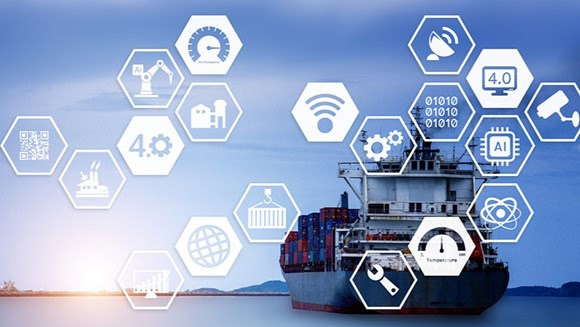The requirement under the Convention on Facilitation of International Maritime Traffic (FAL), requires Governments to use a single digital platform or “Maritime Single Window” to share and exchange information with ships when they call at ports, from 1 January 2024. This will streamline procedures to clear the arrival, stay and departure of ships and greatly enhance the efficiency of shipping worldwide.
IMO Secretary-General Arsenio Dominguez said: “Digitalization is critical for greater efficiency in shipping. The Maritime Single Window delivers information between ships, ports and government agencies quickly, reliably and smoothly.”
More than 4.6 million port calls were recorded globally in 2022. Typically, ships spend at least one full day in port (more or less depending on the ship type).
IMO has supported countries to implement the Maritime Single Window. In November 2023, a generic Maritime Single Window (MSW) platform was handed over to the Port of Lobito in Angola, following a Single Window for Facilitation of Trade (SWiFT) project which was supported by the Maritime and Port Authority of Singapore (MPA) and IMO.
The initiative built upon an earlier successful project coordinated by IMO that saw successful delivery in 2019 of a Maritime Single Window system in Antigua and Barbuda.
The Facilitation Committee of IMO has issued guidelines to assist Member States to implement the MSW, including the revised guidelines for setting up a maritime single window and the guidelines on authentication, integrity and confidentiality of information exchanges via maritime single windows and related services.
Facilitation Convention
The Facilitation Convention was adopted in 1965 and contains Standards and Recommended Practices with rules and procedures for simplifying formalities, documentary requirements and procedures on ships’ arrival, stay and departure. The Convention has been updated continuously, embracing digitalization and automation for procedures.
The annex to the Convention makes it mandatory for public authorities to establish, maintain and use single window systems for the electronic exchange of information required on arrival, stay and departure of ships in ports. In addition, public authorities will have to combine or coordinate the electronic transmission of the data to ensure that information is submitted or provided only once and reused to the maximum extent possible.
Other amendments to the Facilitation Convention, which entered into force on 1 January 2024, include those addressing lessons learnt from the COVID-19 pandemic and new and amended Recommended Practices to prevent corruption and illicit activities in the maritime sector
Lessons learned from the COVID-19 pandemic
The updated annex to the FAL Convention includes provisions derived from lessons learned during the course of the COVID-19 pandemic. Contracting Governments and their relevant public authorities are required to allow ships and ports to remain fully operational during a public health emergency of international concern (PHEIC), in order to maintain complete functionality of global supply chains to the greatest extent possible. Public authorities are also required to designate port workers and ships’ crew as key workers (or equivalent), regardless of their nationality or the flag of their ship, when in their territory.
Best practice recommendations aim to prevent obstacles to crew movement for repatriation, crew change and travel, and encourage dissemination of information about public health matters and expected protection measures by ship operators.
The amendments concerning arrival and departure of persons require public authorities to inform passengers about vaccination requirements sufficiently in advance of departure and vaccinators to use the International Certificate of Vaccination or Prophylaxis in order to assure uniform acceptance.
Tackling maritime corruption
Updates to the FAL Convention take a systemic approach to addressing the issue of corruption associated with the ship-shore interface in ports. Contracting Governments are now required to encourage public authorities to assess the risks of corruption and address them by developing and implementing preventive measures to strengthen integrity, transparency and accountability.
Public authorities are required to coordinate efforts to detect, investigate and sanction corruption related to ships’ calls in the port, including through national and international cooperation.
(Image from IMO)


